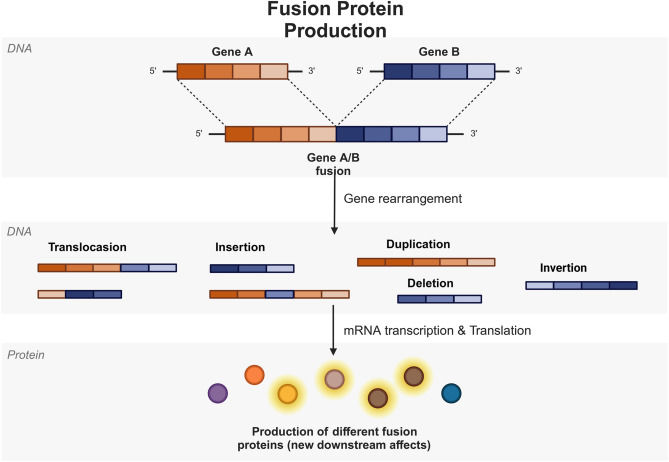
Fusion genes in cancers: Biogenesis, functions, and therapeutic implications


The processes of tumorigenesis and development are intricate, involving numerous genes and molecular pathways. Fusion genes, direct products of abnormal chromosomal rearrangements, are key factors in the formation of many types of tumors. In recent years, the advent of sequencing technology and bioinformatics has led to the discovery of more fusion genes associated with specific types of tumors. The objective of this review is to undertake a comprehensive examination of the discovery and functional mechanisms of fusion genes present in a range of cancers. This will include an analysis of their impact on the biological properties of tumor cells. This review will examine the most prevalent types of fusion genes observed in representative tumor types, including hematological tumors, lung cancer, soft tissue sarcomas, thyroid cancer, and prostate cancer. We provide an overview of the roles and clinical significance of fusion genes, as well as a summarization of the therapeutic strategies for fusion genes, including the application of targeted drugs and related studies. This review presents a comprehensive analysis of the function of fusion genes in the development and treatment of tumors, providing guidance and insights for future research and clinical practice.
